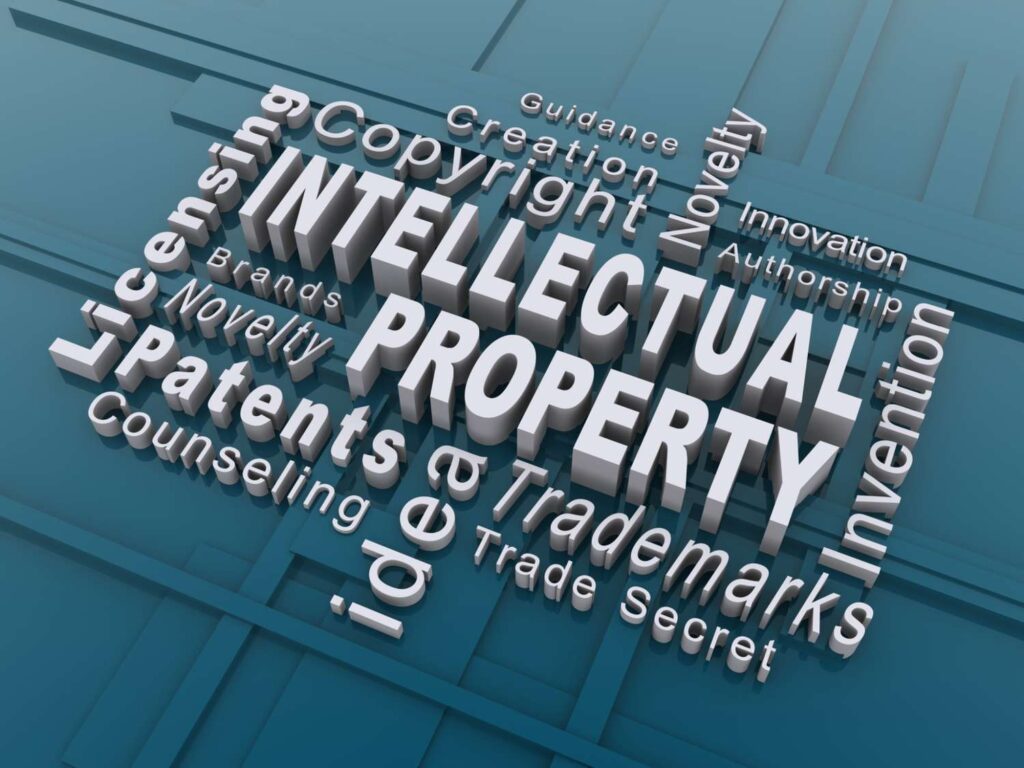In today’s digital age, intellectual property has become a valuable asset for businesses worldwide. As technology advances, the importance of protecting intellectual property rights becomes even more crucial. This article aims to provide a comprehensive overview of protecting intellectual property from a commercial law perspective. We will delve into the definition and importance of intellectual property, explore the different types of intellectual property, examine the role of commercial law in protecting intellectual property, discuss the legal framework for intellectual property protection, analyze intellectual property infringement, and present strategies for protecting your intellectual property.
Understanding Intellectual Property Rights
Before delving into the intricacies of protecting intellectual property, it is essential to have a clear understanding of what intellectual property entails in commercial lawyers Sydney. Intellectual property refers to creations of the mind, such as inventions, literary and artistic works, designs, symbols, names, and images used in commerce. These creations can be protected by various forms of intellectual property rights, including patents, copyrights, trademarks, and trade secrets.
Intellectual property is a term that encompasses a wide range of intangible assets that have commercial value. It plays a vital role in promoting innovation, creativity, and economic growth. Intellectual property rights provide creators and innovators with a legal framework to protect and benefit from their inventions, works of art, and other original creations.
When it comes to intellectual property, there are several types that cater to different forms of creative and innovative works. One such type is patents. Patents protect new inventions and grant exclusive rights to the inventor for a specified period. This means that the inventor has the sole right to make, use, and sell the invention, preventing others from doing so without permission. Patents encourage inventors to disclose their inventions to the public, promoting knowledge sharing and technological advancements.
Another type of intellectual property is copyrights. Copyrights safeguard original artistic and literary works. They give creators the exclusive right to reproduce, distribute, perform, display, and modify their works. This protection ensures that creators can control how their works are used and financially benefit from them. Copyrights cover a wide range of works, including books, music, films, software, and architectural designs. Click here for the role of commercial law in e-commerce ventures.

Trademarks are yet another form of intellectual property. They protect distinctive signs that distinguish products and services. Trademarks can be in the form of names, logos, slogans, or even sounds. They help consumers identify and differentiate between products or services in the marketplace. Trademark protection prevents others from using similar signs that may cause confusion among consumers, ensuring that businesses can build and maintain their brand reputation.
Lastly, trade secrets safeguard confidential business information that provides a competitive advantage. Trade secrets can include formulas, manufacturing processes, customer lists, marketing strategies, and any other confidential information that gives a company a competitive edge. Unlike patents or copyrights, trade secrets do not require registration. Instead, they rely on maintaining secrecy and implementing measures to protect the information.
Understanding the different types of intellectual property rights is crucial for creators, innovators, and businesses alike. It allows them to navigate the complex landscape of intellectual property protection and make informed decisions to safeguard their valuable creations and assets.
Commercial Law and Intellectual Property
Commercial law plays a crucial role in protecting intellectual property rights. It provides a legal framework that governs the creation, acquisition, protection, transfer, and exploitation of intellectual property assets.
Intellectual property refers to creations of the mind, such as inventions, literary and artistic works, designs, symbols, and names used in commerce. These creations are valuable assets that need legal protection to encourage innovation and creativity.
Role of Commercial Law in Protecting Intellectual Property
Commercial law ensures that intellectual property rights are legally enforceable and protected from unauthorized use or infringement. It establishes rules and regulations that govern the registration, licensing, and assignment of intellectual property rights.
One of the key aspects of commercial law is the registration of intellectual property rights. By registering their creations, individuals and businesses can establish ownership and exclusive rights over their intellectual property. This registration process provides legal evidence of ownership and acts as a deterrent against potential infringers.
Moreover, commercial law enables the licensing of intellectual property rights. Through licensing agreements, creators can grant others the right to use their intellectual property in exchange for royalties or other forms of compensation. These agreements allow for the commercialization of intellectual property, benefiting both the creator and the licensee.
Commercial law also provides remedies for infringement of intellectual property rights. In cases of unauthorized use or infringement, the law allows the rightful owner to seek legal action. Remedies may include injunctions to stop the infringing activity, damages to compensate for the loss suffered, and even criminal penalties in severe cases.
Intersection of Intellectual Property and Commercial Law
The intersection of intellectual property and commercial law encompasses various aspects, including licensing agreements, technology transfers, franchising, and international trade.
Licensing agreements are a common practice in the commercialization of intellectual property. These agreements allow businesses to grant others the right to use their intellectual property in exchange for financial compensation. Licensing agreements can be exclusive or non-exclusive, granting the licensee sole or shared rights to use the intellectual property.
Technology transfers are another important aspect of the intersection between intellectual property and commercial law. When businesses develop new technologies, they often transfer their knowledge and expertise to other entities through licensing or joint ventures. This transfer of technology allows for the widespread adoption and commercialization of innovative ideas.
Franchising is yet another area where intellectual property and commercial law intersect. Franchising involves the licensing of intellectual property, such as trademarks and business models, to individuals or businesses (franchisees) who operate under the established brand. Commercial law ensures that franchisors’ intellectual property rights are protected and that franchisees adhere to the agreed-upon terms and conditions.
International trade also relies heavily on the intersection of intellectual property and commercial law. Intellectual property rights play a vital role in international trade agreements, ensuring fair competition and protecting the rights of creators and innovators across borders. Commercial law establishes mechanisms for the enforcement of intellectual property rights in international trade, promoting a level playing field for businesses worldwide.
In conclusion, commercial law plays a fundamental role in protecting and promoting intellectual property rights. By providing a legal framework for the creation, acquisition, protection, transfer, and exploitation of intellectual property assets, commercial law fosters innovation, encourages creativity, and drives economic growth.

Legal Framework for Intellectual Property Protection
Intellectual property protection is governed by a comprehensive legal framework that includes national laws, regulations, and international agreements and treaties.
Intellectual property, which refers to creations of the mind such as inventions, literary and artistic works, symbols, names, and images used in commerce, plays a crucial role in fostering innovation, creativity, and economic growth. To ensure that these valuable assets are protected, countries around the world have established legal systems that grant exclusive rights to creators and innovators.
National Laws and Regulations
Each jurisdiction has its own set of laws and regulations that govern intellectual property protection. These laws establish the requirements for registration, rights ownership, and enforcement of intellectual property. They differ from country to country, necessitating businesses to become familiar with the specific laws governing their jurisdictions.
For example, in the United States, the primary federal laws governing intellectual property include the Patent Act, Copyright Act, and Trademark Act. These laws provide a framework for the protection of inventions, creative works, and brand identities, respectively. Additionally, individual states may have their own laws that supplement the federal framework.
In other countries, such as Germany and Japan, intellectual property protection is governed by their respective patent, copyright, and trademark laws. These laws outline the criteria for obtaining protection, the duration of rights, and the remedies available in case of infringement.
It is important for businesses and individuals to understand the national laws and regulations in their respective jurisdictions to effectively protect their intellectual property rights and avoid any legal disputes.
International Agreements and Treaties
With globalization, intellectual property protection has become a matter of international concern. As businesses expand their operations across borders and consumers access digital content from around the world, the need for harmonized intellectual property laws and international cooperation has become paramount.
International agreements and treaties play a crucial role in establishing a global framework for intellectual property protection. These agreements aim to promote and protect intellectual property rights, encourage innovation and creativity, and ensure fair trade practices.
One of the most significant international agreements is the Paris Convention for the Protection of Industrial Property. This treaty, adopted in 1883, provides a framework for the protection of industrial property, including patents, trademarks, and industrial designs. It establishes basic principles such as national treatment, priority rights, and the right to claim priority from an earlier application.
Another important treaty is the Berne Convention for the Protection of Literary and Artistic Works. This agreement, established in 1886, aims to protect the rights of authors in their literary and artistic works. It sets out minimum standards for copyright protection, including the rights of reproduction, distribution, and public performance.
In addition to these conventions, there are various other international agreements and treaties that address specific aspects of intellectual property protection. For example, the World Intellectual Property Organization (WIPO) administers several treaties, such as the Patent Cooperation Treaty (PCT) and the Madrid Agreement concerning the International Registration of Marks, which provide mechanisms for international patent and trademark protection.
These international agreements and treaties not only harmonize intellectual property laws across borders but also establish mechanisms for international cooperation in protecting intellectual property rights. They facilitate the exchange of information, best practices, and technical assistance among countries, promoting a global culture of innovation and creativity.
In conclusion, the legal framework for intellectual property protection is a complex and dynamic system that encompasses national laws, regulations, and international agreements and treaties. It is essential for businesses and individuals to navigate this framework effectively to safeguard their intellectual property rights and contribute to the growth of innovation and creativity on a global scale.

Intellectual Property Infringement
Intellectual property infringement poses significant threats to businesses and creators. Identifying and addressing infringement promptly is crucial for protecting intellectual property rights.
Identifying Intellectual Property Infringement
Identifying intellectual property infringement can be challenging, as it often requires monitoring the market, conducting investigations, and working closely with intellectual property lawyers. However, early detection is vital to prevent further harm and preserve the value of intellectual property assets.
Legal Consequences of Infringement
Infringing on someone’s intellectual property rights can lead to severe legal consequences, including injunctions, damages, and even criminal prosecution in some cases. It is essential for businesses and individuals to understand the potential liabilities and take steps to ensure compliance with intellectual property laws.
Strategies for Protecting Intellectual Property
Protecting intellectual property requires a proactive approach. Businesses must implement strategies to safeguard their valuable assets effectively.
Registration and Documentation
Registering intellectual property rights, such as patents, copyrights, and trademarks, provides legal certainty and evidentiary proof of ownership. Proper documentation and record-keeping further strengthen the protection of intellectual property assets.
Enforcement of Intellectual Property Rights
Enforcing intellectual property rights requires a comprehensive approach. This includes monitoring the market for potential infringements, taking legal action when necessary, and collaborating with law enforcement authorities and intellectual property professionals.
In conclusion, protecting intellectual property from a commercial law perspective is of utmost importance in today’s knowledge-based economy. Understanding the definition, types, and legal framework of intellectual property rights is crucial for businesses and individuals seeking to safeguard their innovative and creative works. By implementing effective strategies and staying vigilant against infringement, businesses can ensure the long-term protection and monetization of their intellectual property assets.





